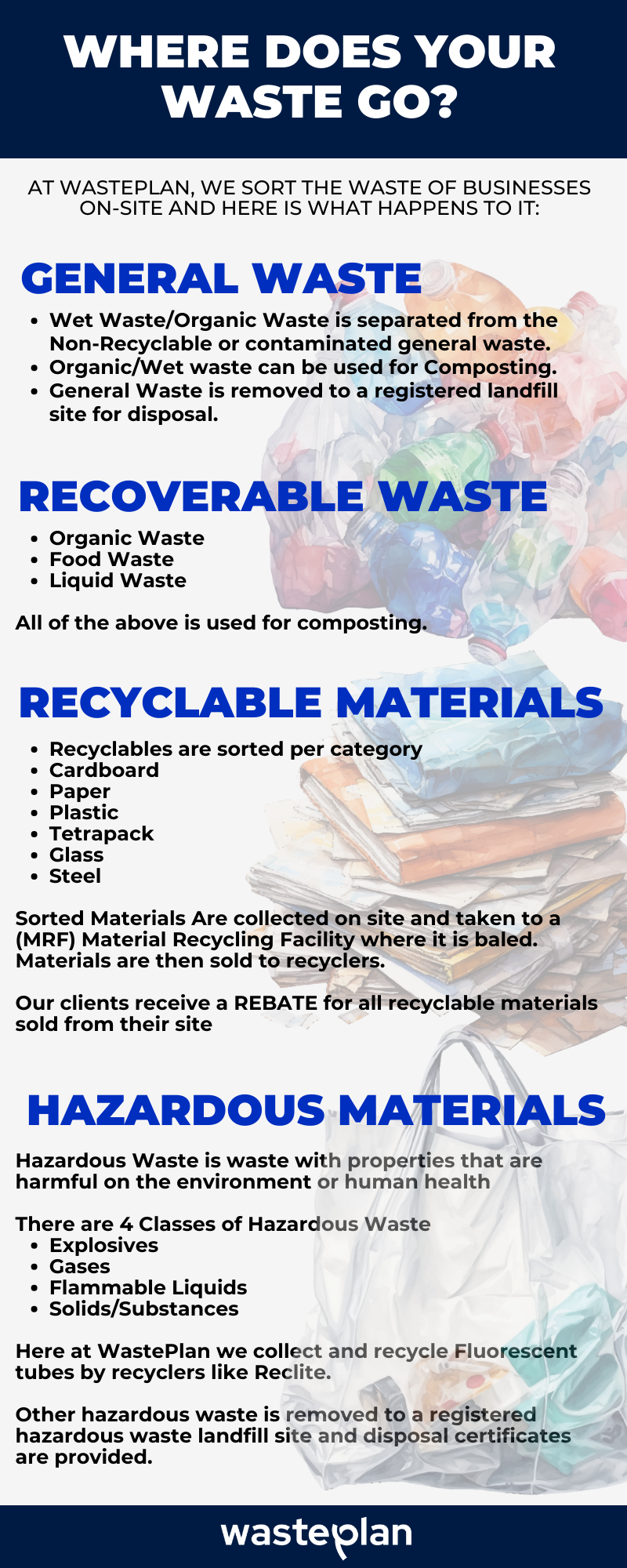Due to increasing costs of waste disposal, the impending crisis of overflowing landfills, and the negative impact waste has on the environment, we can no longer ignore our responsibility to properly segregate our waste.
The WastePlan process
Waste is sorted on your site by a trained sorter, who can identify the different categories of recyclables and disposable waste.
This ensures that all recyclable materials are properly sorted and removed from general/non-recyclable waste.
You might have wondered what happens to items that are recycled. The answer is both simple and complicated. In a nutshell, new, useful products are made from old ones.
The more complicated answer is that many things could be happening with the same type of recyclable material,, depending where in the world you are and who collects and processes the item.
At WastePlan, we sort the waste of businesses such as hotels, hospitals, food factories, universities, shopping centers, office parks and distribution centers and here is what happens to it:

Recyclable materials are sorted per category:
-
Cardboard (K4) gets baled – it goes to a paper mill where new products are made
-
Paper (HL1 and HL2) - various types are baled: Goes to paper mill where new products are made
-
Plastics - various types:
-
Goes through a process of grinding, washing, melting and extrusion into pellet form
-
New products are made from different grades of plastics e.g.
-
Bags into new plastic bags or plastic lumber
-
Polypropylene tubs into chairs
-
PET Bottles into new PET bottles and textiles such as, fleece jackets, insulation for jackets and sleeping bags, carpeting
-
Steel - various grades get melted into new steel products
Sorted materials are collected and taken to a Materials Recycling Facility (MRF) where it is baled
- Materials are then sold to Recyclers
- Clients receive a rebate for all recyclable materials that can be sold
Hazardous waste is dealt with separately:
- Fluorescent tubes are collected and recycled by recyclers like Reclite
- Other hazardous waste is removed to a registered hazardous waste landfill site and disposal certificates are provided
General disposable waste:
- General waste is all waste that is currently not being recycled – this waste is removed and dumped at a registered landfill site (rubbish dump).
Wet waste/organic waste
- Wet waste/organic waste is separated from other non-recyclable or contaminated general waste
- An option for composting of wet/organic waste is available.
- An option for composting of wet/organic waste is available.
In many cases zero waste to landfill is only possible when the right technology is available to turn waste into energy.
We can help you in finding a solution to help you meet your zero waste goals.

.png)



